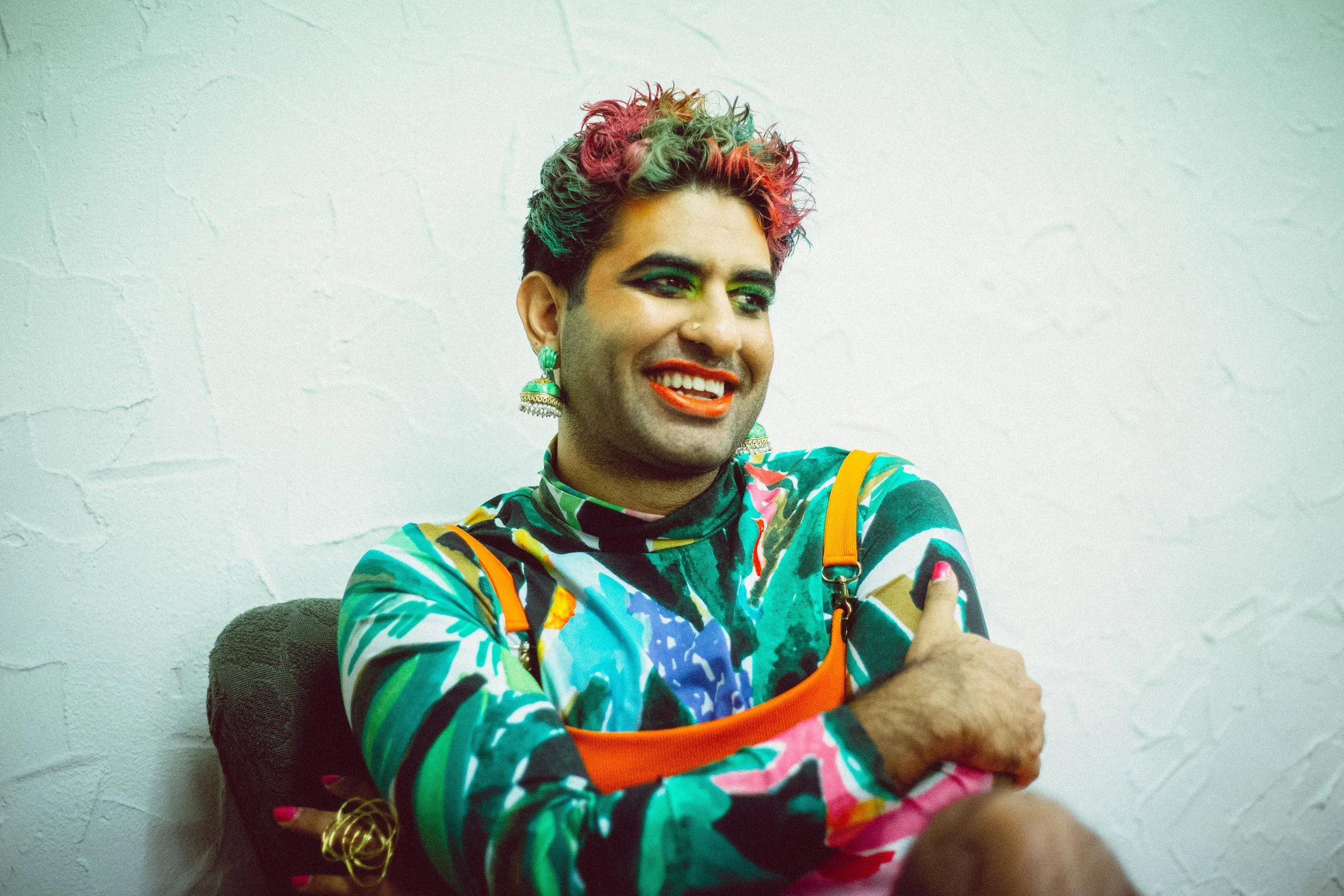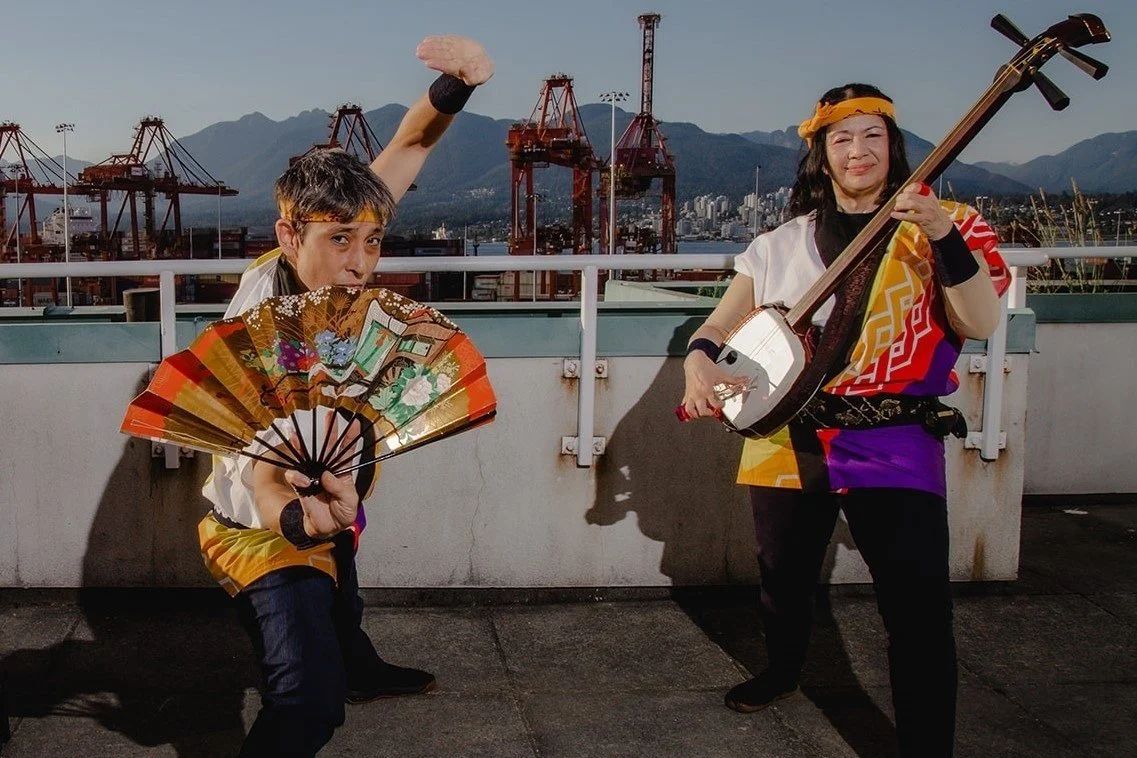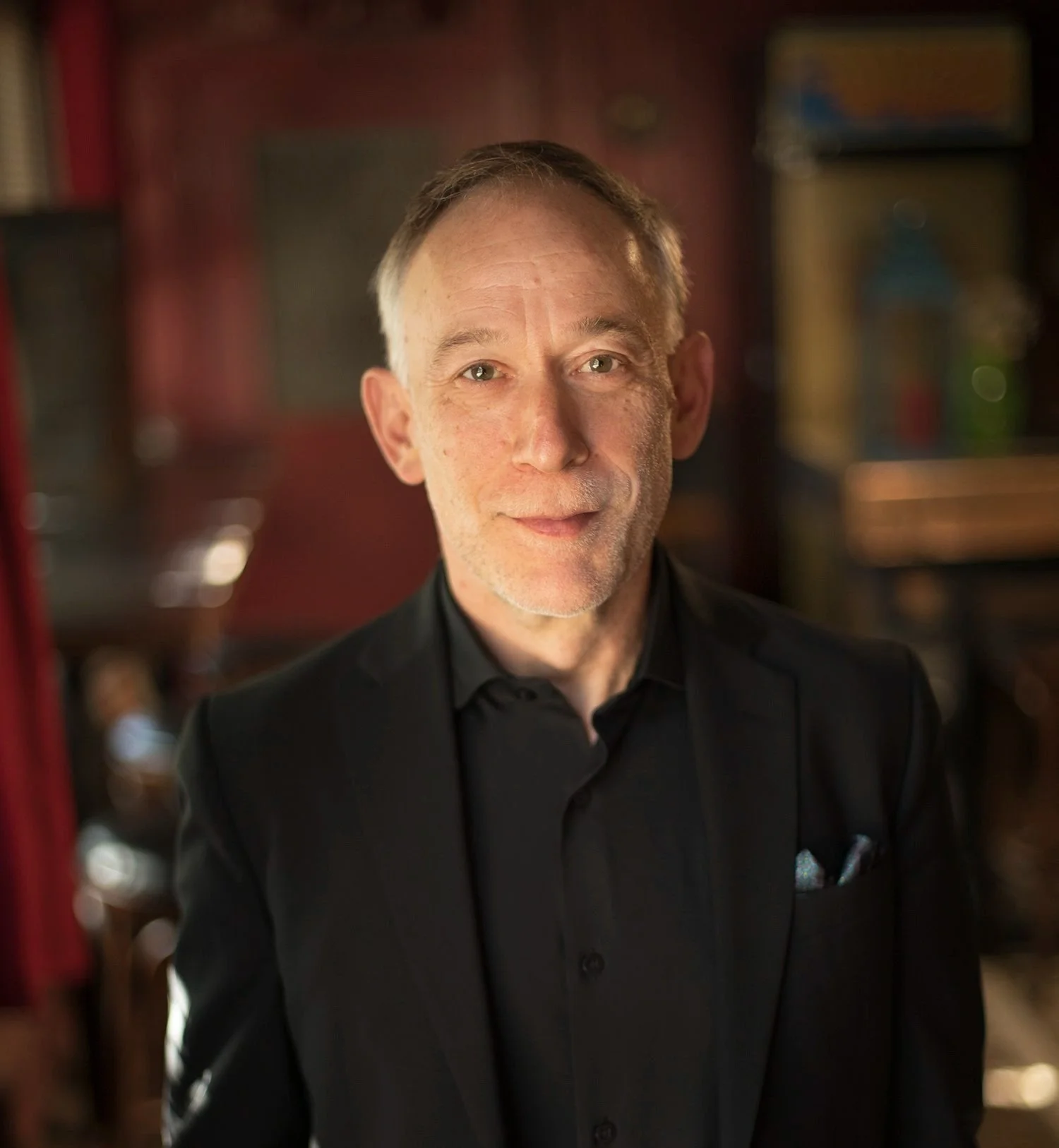Stir Q&A: Alok talks about the meaning of beauty and the freedom of comedy
Hitting Indian Summer Festival, the poet, standup, and fashion and nonbinary icon strives to make the world “a little bit more magnificent”
The optimistic Alok dreams of a future “defined by far less repression and aggression and marked by so much beauty and possibility”.
Indian Summer Festival presents An Evening With ALOK on July 6 at 8 pm at the Chan Centre for the Performing Arts’s Chan Shun Concert Hall
“NO ONE ELSE should be able to tell you who you are; that’s for you to decide.” The line from Alok Vaid-Menon’s book Beyond the Gender Binary is also a mantra that’s driven their comedy, speaking tours, poetry, and artful fashion stylings, amassing 1.3 million Instagram followers in the process.
Known for vivid rainbow hair, five-o’clock shadow, and a high-design wardrobe that’s all Jolly Rancher colours and dangly earrings, the South Asian performer known simply as Alok is set to come to the Chan Centre for the Performing Arts as part of Indian Summer Festival. Viewers can expect a mix of laugh-out-loud comedy, heartfelt activism, and fervent compassion. Raised in the American South, Alok has become famous online for approaching his haters with love (“I am sorry that you have been misled to target me”). They even followed up a traumatizing hate attack in Melbourne, Australia with a performance called “A Love Letter to the Man Who Bashed Me”, publicly forgiving the transphobic perpetrator.
All of this is to say that Alok’s comedy-talk here is aimed at everyone—proving laughs really don’t recognize gender binaries.
Stir caught up with the artist amid a busy tour (stops include Paris, Athens, and Edinburgh) to talk deeply about the need to embrace gender fluidity, the freedom of comedy, the good and bad of social media, and much more.
Your freedom from norms and “boxes” extends to your performance style. What do you tell a random person who asks you what you do—and is any single practice more important than others at the moment?
“I say I try to make the world that is so often committed to misery a little bit more magnificent. I try my best to be beautiful—by which I mean, myself.
“Technically the show that I’m touring right now is one hour of ‘standup comedy’, but in writing it I found poetry peeking out of my jokes: the specific word choices, the turns of phrases, the metaphors, the images. In performing it: there is theatre and acting. We continually act as if these genres are distinct, but they are not. People often say that I am ‘blending’ genders and genres, but these genders and genres have no clear lines in the first place, so what does that really mean? I’m a big believer that both gender and genre hold us back from beauty. Beauty—by which I mean, honesty.”
You have come at violence and conflict from a place of peace, forgiveness, and empathy—most strikingly in your “A love letter to the man who bashed me”. But I’m also very interested in the role humour takes in your performance and writing. Was there a time when you couldn’t laugh at these issues and how have you found a way to discover comedy in them?
“Yes, for a long time I couldn’t laugh in the face of pain. My embrace of comedy was only possible because of my healing practice. In the past, when met with vitriol some part of me… Believed it? I didn’t have as secure a sense of self, it was harder for me to disentangle my self-concept from other people’s projections. My resentment became corrosive and counterproductive, manifesting as chronic pain. As I began the word of not just self-acceptance, but self-gratitude—feeling blessed to be trans—the vitriol seemed more and more ridiculous. The stakes became very clear/queer for me: there are hordes of people who are wasting their precious time on Earth hating me and my community when they could be... Having a picnic, cultivating a garden. All of these people are going to die, just like me. And instead of building meaningful connections, enjoying their finite time on Earth, they are fixated on judging and policing other people.
“That’s... Tragicomedy. I began to question: am I the oppressed one in this situation, or are they? I began to realize (not just with my mind, but with my body) that transphobia has far less to do with us as trans people, and more to do with non-trans people. And that was such a profoundly liberating realization. I got to be free. I get to be free. Comedy comes from that place.”
You’ve been able to leverage social media for love and acceptance—but it remains a tool for queerphobic comments and anti-trans conspiracies. What’s your take on that and your relationship with social media?
“When it comes to social media—much like so many other institutions—we have to learn how to become bilingual: both in what has been glorious, and what has been gruesome. Dichotomous thinking is holding us back from the truth.
“On the one hand social media has made so much of the international touring that I do possible. On the other hand, it’s also exposed me to rampant discrimination and disinformation the scale of which is often unfathomable. One experience doesn’t cancel out the other. Despite the fact that trans and gender non-conforming people bring so much life and relevance to these platforms, they refuse to keep us safe. Our safety and dignity are casualties in the pursuit of virality and profitability. With the escalation of anti-LGBTQ sentiment the world over—most often fuelled by social media disinformation campaigns—the stakes are more dire than ever. We need significant structural changes, not just symbolic support.”
You’ve said you want to end the gender binary not just for trans people, but all people. Can you expand on what your hope for the future is?
“The gender binary is the idea that you can reduce billions of complex people and all of their behaviours and sensibilities to one of two categories: man or woman/masculine or feminine. These categories are positioned as distinct and opposing: to be masculine is to not be feminine, and vice-versa. The gender stereotypes that everyone is held to: the idea that men must be ‘strong’ and women must be ‘emotional’, originate from this binary gender imperative.
“In moving beyond the gender binary we can decouple gender from norms and create the space for people to self-determine what their gender means to them. Ending the gender binary does not mean getting rid of the categories ‘man’ or ‘woman’ or requiring everyone to be nonbinary. What it means is honouring people’s creative autonomy to express themselves on their own terms, without being held to pre-existent norms. I believe this future will be one defined by far less repression and aggression and marked by so much beauty and possibility.”
Last, a very important question. What is your favourite outfit you’ve worn on this tour, and what colour is your hair at the moment?
“Hair is black. Won’t say that’s my natural colour—that’s a word I reserve for rainbow. My favorite outfit so far is this hand-painted dress I wore for my show in Marseille, France made by a local queer Argentinian designer, Leo Peralta.” (See photo from Instagram post below.) ![]()
From Instagram @alokvmenon, with @leoperaltacouture.










![Theatre review: Complete Works of William Shakespeare (abridged) [revised] [again] takes pleasingly panicked tour of the Bard’s canon](https://images.squarespace-cdn.com/content/v1/5f10a7f0e4041a480cbbf0be/1752776963817-BS2BYYQMLMSGU9OG3E37/Nathan-Kay-and-Craig-Erickson.-Photo-By-Tim-Matheson.jpg)



